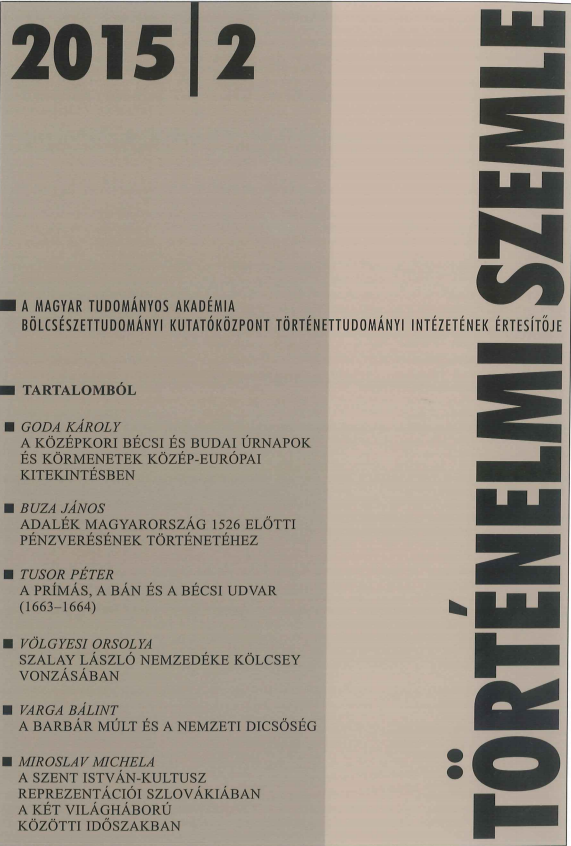Szalay László nemzedéke Kölcsey vonzásában
The Generation of László Szalay in the Lure of Kölcsey
Author(s): Orsolya VölgyesiSubject(s): Hungarian Literature, 19th Century
Published by: Magyar Tudományos Akadémia Bölcsészettudományi Kutatóközpont Történettudományi Intézet
Keywords: Ferenc Kölcsey; József Eötvös; László Szalay; history; Hungarian literature;
Summary/Abstract: It is well-known that, as an MP for Szatmár county, Ferenc Kölcsey (1790–1838) enjoyed extreme popularity with the younger generation. His fame was no doubt founded by his literary activities: the young people who attended the diet of Pozsony in 1832 to 1836 as either jurists or adjutants to the MPs had become familiar with Kölcsey’s name and oeuvre in school reading circles and student literary associations. Meeting him personally became an event of lasting influence for many a youth who would later play an important role in the revolution of 1848, such as, among others, baron József Eötvös (1813–1871) and László Szalay (1813–1864). Upon entering the literary public, Szalay and Eötvös received considerable support and encouragement from Ferenc Kazinczy, Pál Szemere and Ferenc Kölcsey. Although Szalay, who at the turn of the 1820s and 1830s had still cultivated a number of genres, gradually distanced himself from literature and turned towards the social sciences, his intimate relationship with Kölcsey, as revealed by their correspondence, survived the change. It was in November 1831 that Szalay met Kölcsey in person, when, upon the instigation and intervention of Pál Szemere, he went for a judicial practice to Szatmár county, where he spent some four months. Szalay thus locked into a very agitated period in the life of Kölcsey, for it was then that the committee works (proposals for the modernization of the country) were debated in the county, a work in which Kölcsey played a dominant role as the deputy notary of Szatmár. After the death of Kölcsey, Eötvös and Szalay as editors, and Endre Pap, hís former judicial assistant, as the curator of his text, played a dominant role in the publication of the writer’s oeuvre. Alongside editing his works, the members of the younger generation grasped all opportunities in order to manifest their respect towards Kölcsey and promote the cult which was burgeoning around his person. The first element of this was the influential speech which was dedicated by József Eötvös to the memory of Kölcsey at the session of the Academy held on 24 November 1839. Another such piece was the work entitled Kölcsey’s Memory, written by Bertalan Szemere and published in the Book of the Budapest Flood, edited by József Eötvös, whereas Endre Pap wrote the biography of Kölcsey for the volume called Hungarian Rhetors and Statesmen. As for Szalay, in his correspondence with the historian Alexander Flegler, he shared his personal memories for a prepared German biography of Kölcsey, in which he, like other members of his generation, put the emphasis upon the moral-ethical content of Kölcsey’s life and work.
Journal: Történelmi Szemle
- Issue Year: 2015
- Issue No: 02
- Page Range: 251-264
- Page Count: 14
- Language: Hungarian

